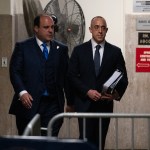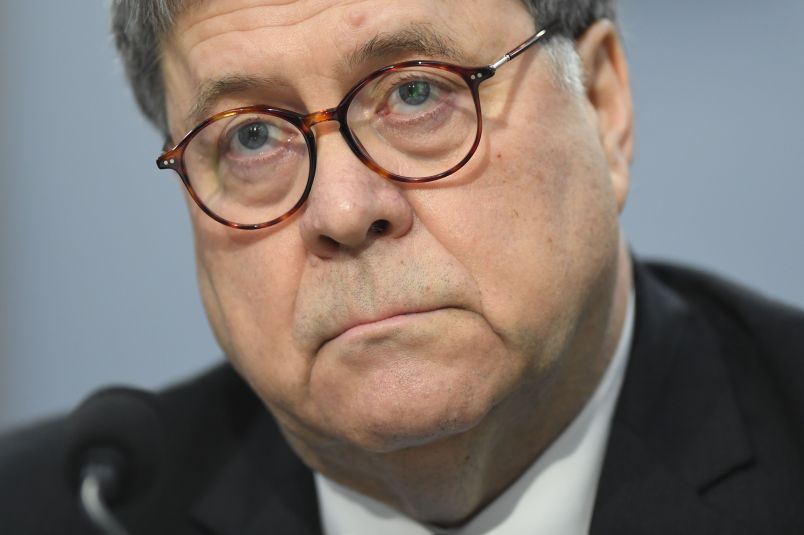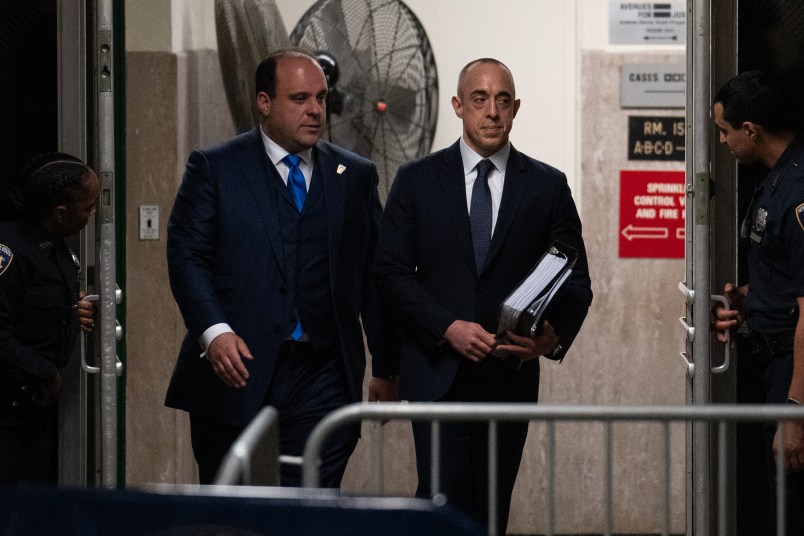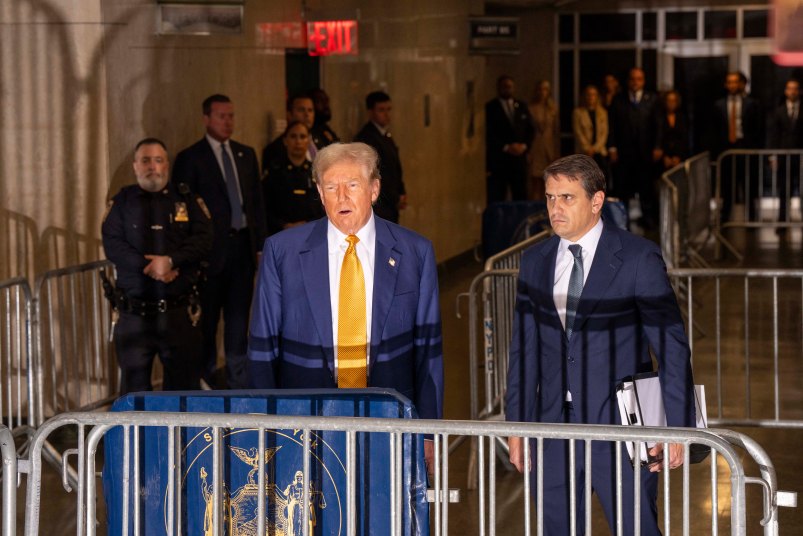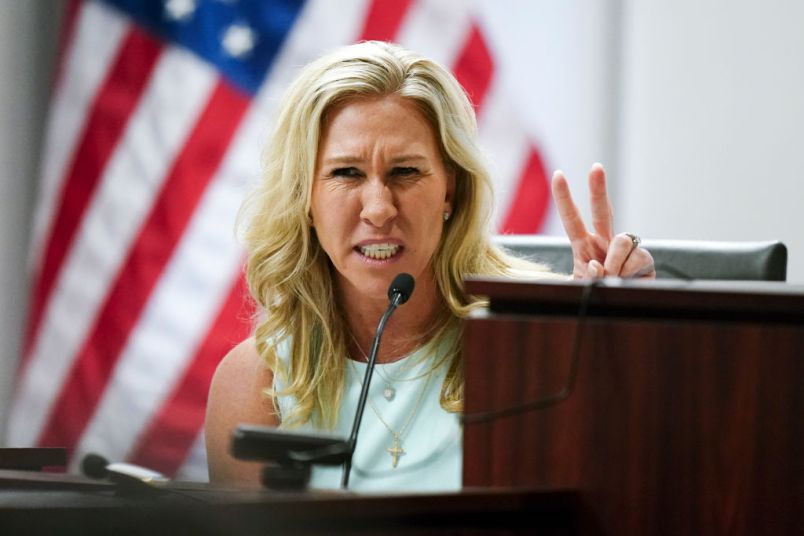Attorney General Bill Barr was grilled by lawmakers on Tuesday for the first time since special counsel Robert Mueller’s final report was submitted.
Democrats on the House Appropriations subcommittee pressed Barr to account for his “cherry pick[ed]” comments to Congress about Mueller’s findings, as the Attorney General insisted he’ll be as transparent as the law allows.
“Within a week,” Barr promised, Congress and the public will have a redacted version of the 400-page document and be able to determine for themselves if they’ve learned enough to be satisfied.
Here were the key moments from the hearing.
Mueller didn’t review Barr’s March 24 letter absolving Trump
Mueller declined to review the explosive March 24 letter in which Barr said there was not enough evidence to charge Trump with collusion or obstruction of justice. That four-page document noted that Mueller himself declined to make a decision on obstruction, and that the evidence did “not exonerate” the President.
“The letter of the 24th, Mr. Mueller’s team did not play a role in drafting that document,” Barr testified, “we offered him the opportunity to review it before we sent it out and he declined that.”
The redacted report will be released “within a week”
“My original timetable of being able to release this by mid-April stands,” Barr testified, saying that Congress will be in possession of what he called “the first pass” of the report “within a week.”
Information pertaining to secret grand jury testimony, ongoing investigations, classified intelligence, and un-indicted “peripheral players” will be redacted, Barr maintained. A color-coded system for these four redacted categories and “explanatory notes” will serve as a roadmap for lawmakers and reporters poring over the report.
Barr doesn’t think the full report should come out
Barr testified that he has no intention of turning the full, unredacted report to Congress. His primary concern, he insisted, is protecting confidential grand jury material included in the document.
“My intention is not to ask” a judge to authorize the public release of grand jury information, Barr said. He allowed that House Judiciary Committee Jerry Nadler (D-NY), who has vehemently argued for the full report to come out, could make that request himself.
Barr appeared defensive over his handling of the report
The Attorney General appeared defensive during questioning about reports that members of Mueller’s team were unhappy with his characterizations of their findings.
“I suspect that they probably wanted more put out,” Barr acknowledged. “But in my view I was not interested in putting out summaries or trying to summarize.”
Barr’s initial letter summarizing what he called Mueller’s “principal conclusions” was simply intended as a stop-gap to satisfy the overwhelming public curiosity about what the special counsel found, he said.
He insisted that he “tried to use special counsel Mueller’s own language” in that letter. CNN found that only 101 words, including the title, were direct quotes from Mueller’s report.
Barr declined to say if the White House has seen the Mueller report
At some points in the testimony, the story was in what wasn’t said. When asked if the White House saw the Mueller report, either before Barr wrote his summary or since, Barr refused to answer. “I’m not going to say anything more about it until the report is out and everyone has a chance to look at it,” he said after citing the information he’d already given.
This is a slight shift from his last public stance on the subject. Barr wrote in a letter to House Judiciary Committee chairman Jerry Nadler (D-NY) and Senate Judiciary Committee chairman Lindsay Graham (R-SC) less than two weeks ago that “there are no plans to submit the report to the White House for a privilege review.”
Acting Chief of Staff Mick Mulvaney said Sunday on Fox News that no one in the administration had requested an advance copy of the report.
Barr would not clarify the exoneration quote in his summary
The Attorney General kicked the can down the road, saying that he would testify about the exoneration issue after the release of the report. “It’s hard to have that discussion without the contents of the report, isn’t it?” he said. “That’s why I’m suggesting that we wait until the report is out and I’m glad to talk to people about it after then and I’m already scheduled to testify about that.”
The exoneration point is perhaps the most contentious partial quote slipped into Barr’s summary: “The Special Counsel states that ‘while this report does not conclude the President committed a crime, it also does not exonerate him.’”
It is unclear what the fragment refers to exactly, or why Mueller would add a caveat like that but not pursue criminal charges. Democrats have salivated over the quote, hanging their hopes on the possibility that the report does contain damning information on Trump.
Trump, on the other hand, disregarded the line completely and has been crowing about “TOTAL EXONERATION” on Twitter since Barr’s summary went public.
Barr brushed off concerns of the ramifications of killing Obamacare
Barr also faced questions about the Justice Department’s endorsement of a federal court’s ruling to invalidate the Affordable Care Act in its entirety, a drastic shift from the administration’s previous position that certain facets of the law should be shot down. Most estimates pin the number of people who’d be without healthcare if the ACA was jettisoned at over 20 million.
Sixteen states and Washington D.C. have appealed the decision, which is now in the 5th Circuit Court of Appeals. Per Politico, the Justice Department filed a motion to expedite the oral arguments in the appeals court to the week of June 8.
Rep. Matt Cartwright (D-PA) asked Barr if he realized how many people would be impacted if the Department of Justice’s attack on Obamacare proves successful.
“Do you think it’s likely we’re going to prevail?” Barr responded.
“If you think it’s such an outrageous position, you have nothing to worry about,” he added. “Let the courts do their job.”

